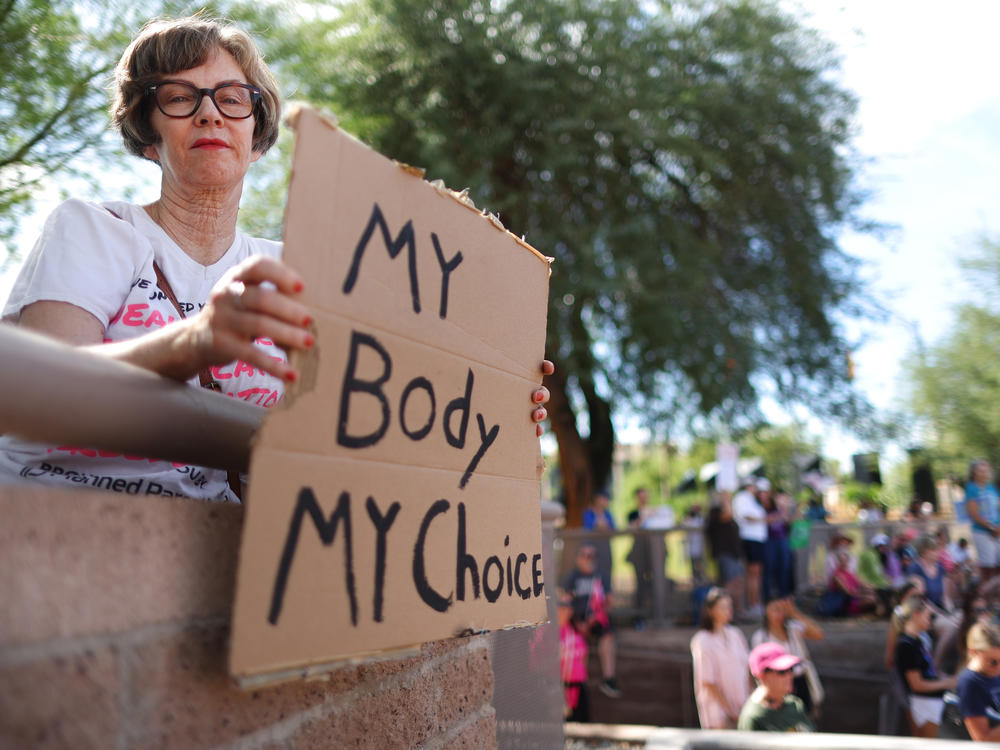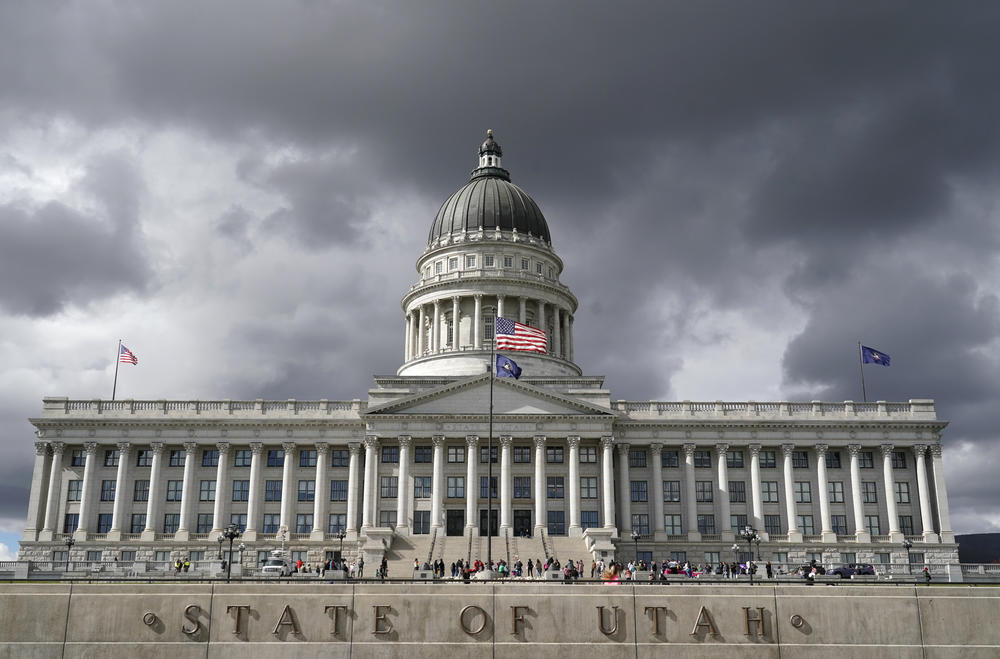Section Branding
Header Content
The states where abortion is on the ballot in November
Primary Content
Plenty has happened with abortion access in the nearly two years since the Supreme Court overturned Roe v. Wade.
State laws have been changing constantly, new bans have taken effect, and there have been a slew of lawsuits and ballot measures.
All Things Considered host Mary Louise Kelly sat down with NPR's reproductive rights correspondent Elissa Nadworny, and Selena Simmons-Duffin, who covers health policy at NPR, to examine the state of abortion.
There are total bans on abortion with very limited exceptions in 14 states. A few more states have six-week bans.
"Florida was the most recent place for this [six-week ban] to take effect. There are states like Nebraska that ban abortion after 12 weeks. In Arizona, it's 15 weeks. More than half of the states have restrictions. And in those states, the number of abortions has dropped drastically," Nadworny said.
But despite that trend, the overall number of abortions in the U.S. has actually gone up — due in part to the growing accessibility of telehealth appointments that can provide medication abortions.
You're reading the Consider This newsletter, which unpacks one major news story each day. Subscribe here to get it delivered to your inbox, and listen to more from the Consider This podcast.
What voters want
When it comes to the ballot, Nadworny says abortion rights has been a winning issue.
"Nationally, polling shows 6 in 10 Americans say abortion should be legal in all or most cases, but that can vary by state," she said. "But since Dobbs, voters in six states have weighed in on constitutional amendments on abortion. Voters chose access to abortion each time."
Four states — Colorado, Florida, Maryland and South Dakota — will be voting on the right to an abortion in the upcoming elections. Six more states, including Arizona and Missouri, are working to get it on the ballot.
Voters this fall may also be reacting to what they've seen when their access to reproductive healthcare becomes limited.
In states with more restrictive bans, like Idaho, dozens of OB-GYNs have left the state, according to one doctor who spoke to NPR. And three maternity wards have closed since the state's abortion ban took effect. Recruiting problems are widespread for hospitals that are operating in states with abortion bans.
What could change
Simmons-Duffin says that while abortion access is getting rolled back in some states, it is gaining more protections and funding in others. When Roe v. Wade was in place, there were lots of restrictions and regulations about when and how the procedure could be performed.
"Some states like Michigan, Colorado, Minnesota, California and others have made moves to undo some of those regulations," she said. "They're getting rid of things like waiting periods and gestational limits," Simmons-Duffin said.
"They're allowing more types of providers like nurse practitioners to provide abortions. They're training more providers on abortions. Some states have stockpiled Mifepristone, one of the medicines that can be used for abortion, in case access is curtailed in the future."
Simmons-Duffin added that some places, like New York City, have made abortion hubs part of the health department. "So you can call a number and find out where to get an abortion and how to get funding to cover the costs," she said.
Meanwhile, there are still two major decisions on abortion pending before the Supreme Court that are set to be announced next month:
- The first is regarding access to the abortion medication Mifepristone, and the possibility of the court restricting it nationwide.
- The second is about abortion in emergency situations, and centers on Idaho's medical exception.
"Both of these decisions will be coming down in early summer, just a few months before the election. So regardless of what the justices decide, it's going to catapult abortion back into the headlines at a key time for voters," Simmons-Duffin added.
For the full discussion on abortion in the U.S., listen to the episode of Consider This by tapping the play button at the top of the page.


